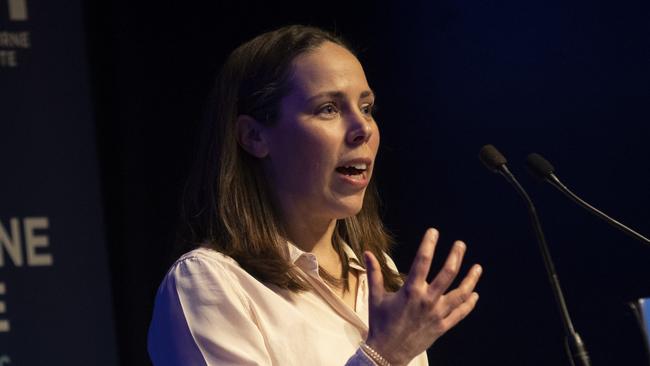Aged care staff pay rise no hit to inflation
An unprecedented 15 per cent pay rise for the country’s aged-care workforce come with only a ‘marginal’ increase in inflationary pressures, economists say.

An unprecedented 15 per cent pay rise for the country’s aged-care workforce could help ease critical staffing shortages and come with only a “marginal” increase in inflationary pressures, economists say.
ANZ senior economist Catherine Birch said the interim decision by the Fair Work Commission to give 330,000 “direct care” employees, including nurses and personal care workers, a 15 per cent boost would add “a fairly marginal” 0.2-0.3 percentage points to the wage price index – the measure traditionally tracked by the Reserve Bank.
Ms Birch said a “very rough” estimate of providing the full 25 per cent increase demanded by unions, and extending this higher increase to all workers in the industry, could drive WPI growth up by a total of 0.5 percentage points.
The Fair Work Commission, in a decision announced on Friday, found aged-care employees were undervalued and that significant changes to the way they worked over the past two decades justified the large lift in pay. The judgment did not preclude a larger increase, or that it be extended to staff other than direct care workers.
Ms Birch agreed there was a strong argument that the market did not appreciate the work of aged-care employees. “There are struggles to get enough qualified staff into these sectors, and one of the big reasons are the conditions and the pay. Hopefully (as a result of the pay decision) we will have more people working in the sector, an improvement in the quality of the care, and everyone will benefit,” she said.
Westpac senior economist Justin Smirk said it was still too early to judge the impact of the FWC’s decision. “It’s something we are all watching,” he said.
“We don’t know how people will respond to it, and what impact it will have on other workers or sectors. History would tell us not a lot, but the dynamics of the labour market have changed over the past couple of years. We’ve never had such a tight labour market, and never had such a large rise,” he said.
“It’s pretty obvious this sort of outcome is not deflationary – it is inflationary. The question is how inflationary, and my guess (is) it’s pretty marginal.”
Mr Smirk said the only way to boost labour supply was to draw more people into the workforce by offering better conditions, or to take in more migrants.
“Otherwise you are poaching staff from elsewhere, and that doesn’t reduce the country’s labour shortage,” he said.
The WPI tracks changes in pay rates across a basket of set job descriptions, so does not reflect, for example, wage rises across the economy thanks to promotions, increased hours or changing jobs. Over the year to June the WPI grew at a still subdued 2.6 per cent, but the RBA predicts it will lift to 3.1 per cent by December, before accelerating to 3.7 per cent through 2023.
The 15 per cent pay rise would be roughly double the rate of annual inflation, which hit a 32-year high of 7.3 per cent in September, and is expected to peak at 8 per cent by December.
Employees more broadly are anticipated to suffer falling real wages until late 2024, the RBA’s latest forecasts say.




To join the conversation, please log in. Don't have an account? Register
Join the conversation, you are commenting as Logout